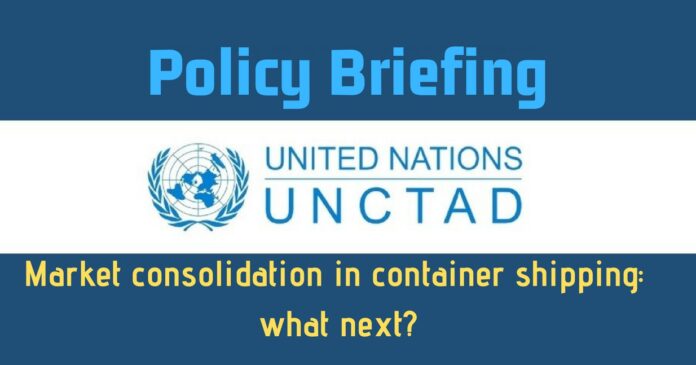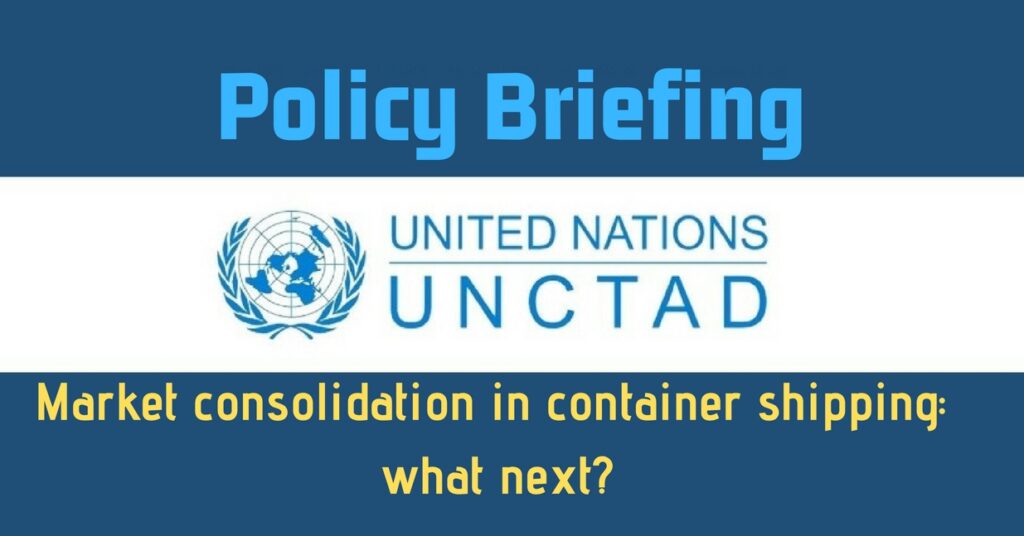
(www.MaritimeCyprus.com) The United Nations Conference on Trade and Development (UNCTAD) issued a new policy brief. Over the past two years, a wave of market consolidation has transformed the global container shipping industry, leading to mergers and acquisitions between container lines, a reshuffling of shipping alliances and the expansion of shipping companies into port operations. There is potential for more consolidation, which raises the question as to the implications for market concentration levels, and whether the industry is becoming an oligopoly on certain routes.
Consolidation activity in 2016–2018 reflects the industry’s efforts to cope with the difficult market conditions faced since the 2008 global financial crisis. For many years, container shipping has struggled with low freight rates, dwindling earnings and poor financial returns.
There are clearly two sides to the container market consolidation story. By consolidating and joining alliances, container lines can expect to reduce costs, better manage ship capacity and enhance efficiency. These, in turn, benefit shippers, if on a given route the savings achieved by container lines translate into lower rates and improved service offerings. On the other hand, shippers, trade and ports can be negatively affected, if on a given route, consolidation results in reduced competition, constrained supply, market power abuse, and higher rates and prices.
These trends call for systematic and regular monitoring and assessment of consolidation trends in container shipping.
Click on below image to view full report.
Source: United Nations Conference on Trade and Development (UNCTAD)




















Rarely if ever have I seen something as poor as this from UNCTAD...